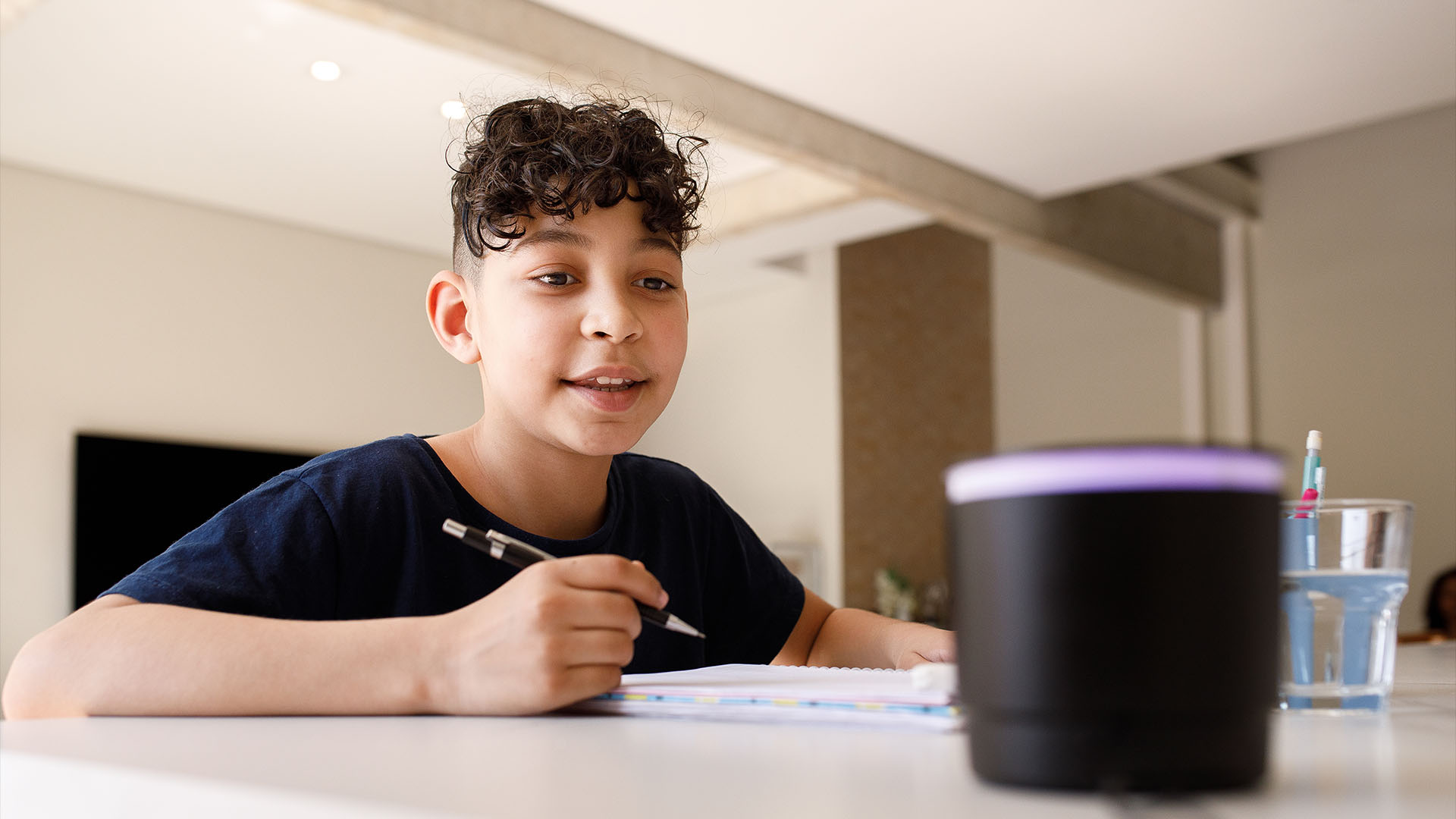
Many elementary-age children think artificial intelligence (AI) assistants like Alexa and Siri may have feelings or the ability to make decisions independently, a study suggests.
The research, published in the journal Computers and Education: Artificial Intelligence, investigated how 6- to 11-year-old children perceive household AI assistants, such as Alexa, Siri and Google Assistant. The study, conducted in Scotland through questionnaires and interviews, hints that children may overestimate and misunderstand the intelligence of these popular technologies.
"Children should be taught AI literacy in schools, and technology designers should take care that their AI products don't mislead children into thinking they are human-like," study co-author Judy Robertson, chair in digital learning at the University of Edinburgh, said in a statement. "AI is often designed to appear more human and intelligent than it really is, which is very confusing for children."
Of the 166 children surveyed for the study, 93% had a smart speaker at home. They reported using the devices to listen to music, ask questions, search for information, get help with homework, and listen to jokes and stories. Research by Statista, a data-analysis firm, estimates that 57% of U.S. households will own at least one smart home device by 2025, suggesting around 40 million children could have one in their house in the next year.
Related: Scientists create AI models that can talk to each other and pass on skills with limited human input
Despite their familiarity with these devices — or perhaps because of it — many of the surveyed children reported being uncertain about whether the gadgets possess human-like qualities, such as emotions or decision-making abilities. Just under one-third believed smart speakers could think for themselves, to some extent, while 40% thought they "maybe" could.
Notably, only 1% of the children actually categorized the devices as "human." Around 80% classified them as "AI," and 15% said they were "objects." But given that roughly two-thirds believed the systems might be able to think as we do, the researchers said the study highlights the risk of children overestimating the reliability and capabilities of AI systems.
Many children interviewed said that, if their Alexa breaks, it wouldn't be right to throw the device away, although this view was more common among younger participants. About 68% of the 8-year-olds in the study held this view, compared to 37% of 11-year-olds. But when asked if Alexa would feel left out if not included in a conversation, older children were more likely to say yes — 73% of 11-year-olds and 72% of 10-year-olds felt this way, while only 38% of 8-year-olds did.
"The findings reveal the importance of enhancing children's awareness and understanding of AI-supported technology to ensure safe and responsible interactions with smart technologies," study co-author Valentina Andries, who conducted the study at the University of Edinburgh but recently moved to the University of Oxford, said in the statement.
"This is becoming increasingly important in the current context of generative AI technology for various purposes, including in education," Andries added. Generative AI refers to deep-learning algorithms that generate new content, as ChatGPT generates text, for example.
Due to the rapid development and increasing availability of AI-related tech, everyone — not just young children — should try to recognize the limitations and capabilities of contraptions like smart devices, Madeline Reinecke, a postdoctoral researcher in the psychiatry department at the University of Oxford, and who was not involved in the study, told Live Science.
"I think it's important for all users, whether they're aged 5 or 50, to have an accurate picture of what these technologies are, and how they can best use them safely and responsibly," particularly as they're becoming more human-like, she said.
Reinecke suggests that additional studies into how both adults and children use and respond to such technology are needed. "There hasn't been much time for researchers to track what downstream impact they [emerging technologies] might have on children's cognitive and social development," she said.
However, regarding the University of Edinburgh's study, Reinecke noted that the children's overestimations of smart technology are likely "relatively harmless in the grand scheme" of their cognitive development.
On one hand, "smart speakers … offer an opportunity for children to learn more about the world around them," she said. "But it's imperative that they learn to think critically about where that information comes from."
Ever wonder why some people build muscle more easily than others or why freckles come out in the sun? Send us your questions about how the human body works to community@livescience.com with the subject line "Health Desk Q," and you may see your question answered on the website!







